Serving 470 students in grades 6-12, Ivy Academy Inc. ranks in the top 50% of all schools in Tennessee for overall test scores (math proficiency is bottom 50%, and reading proficiency is bottom 50%).
The percentage of students achieving proficiency in math is 22% (which is lower than the Tennessee state average of 31%). The percentage of students achieving proficiency in reading/language arts is 39% (which is higher than the Tennessee state average of 37%).
The student:teacher ratio of 13:1 is lower than the Tennessee state level of 15:1.
Minority enrollment is 15% of the student body (majority Hispanic and Black), which is lower than the Tennessee state average of 43% (majority Black).
Quick Stats (2025)
- School Type: Charter School
- Grades: 6-12
- Enrollment: 470 students
- Student:Teacher Ratio: 13:1
- Minority Enrollment: 15%
- Graduation Rate: ≥90% (Btm 50% in TN)
- Overall Testing Rank: Top 50%
- Math Proficiency: 22% (Btm 50%)
- Reading Proficiency: 39% (Top 50%)
- Science Proficiency: 49% (Top 30%)
- Source: National Center for Education Statistics (NCES), TN Dept. of Education
Top Rankings
Ivy Academy Inc. ranks among the top 20% of public schools in Tennessee for:
Category
Attribute
Most improved public schools
Student Attention
School Overview
Ivy Academy Inc.'s student population of 470 students has grown by 53% over five school years.
The teacher population of 35 teachers has grown by 94% over five school years.
School Type
Grades Offered
Grades 6-12
Total Students
470 students
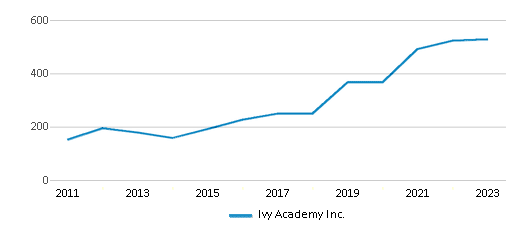
Gender %
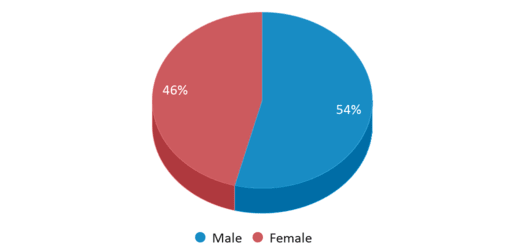
Total Classroom Teachers
35 teachers
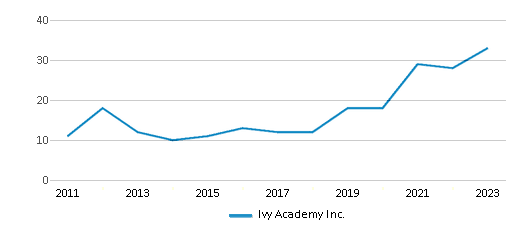
Students by Grade
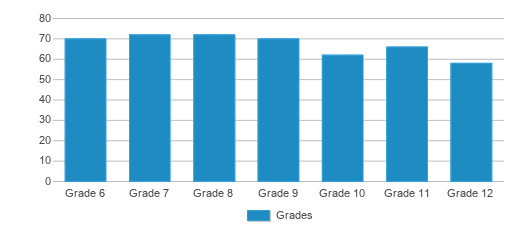
School Rankings
Ivy Academy Inc. ranks within the top 50% of all 1,761 schools in Tennessee (based off of combined math and reading proficiency testing data).
The diversity score of Ivy Academy Inc. is 0.27, which is less than the diversity score at state average of 0.61. The school's diversity has stayed relatively flat over five school years.
Overall Testing Rank
#846 out of 1761 schools
(Top 50%)
(Top 50%)
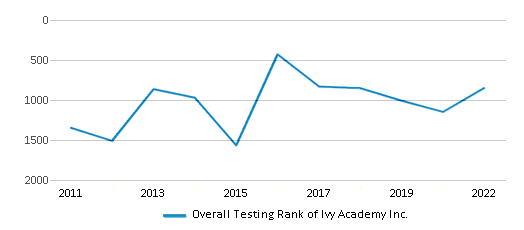
Math Test Scores (% Proficient)
22%
31%
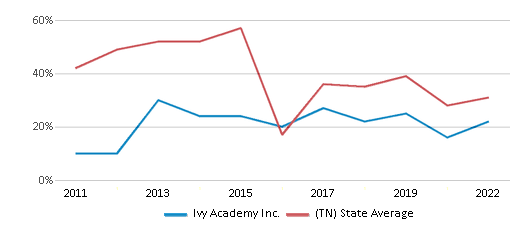
Reading/Language Arts Test Scores (% Proficient)
39%
37%
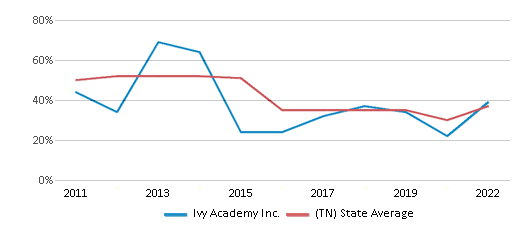
Science Test Scores (% Proficient)
49%
40%
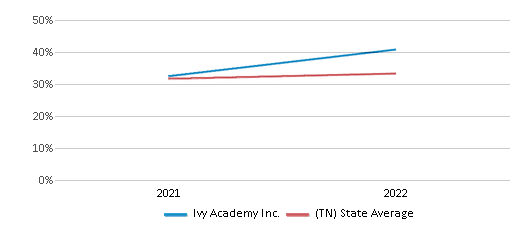
Student : Teacher Ratio
13:1
15:1
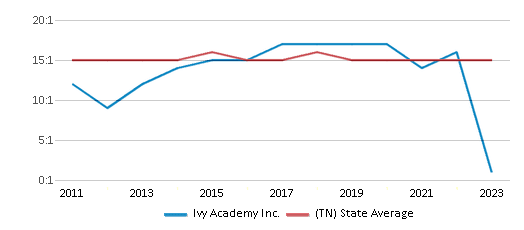
American Indian
1%
n/a
Asian
1%
2%
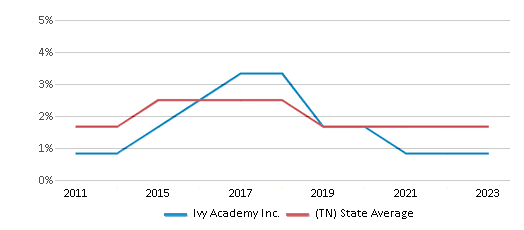
Hispanic
5%
15%
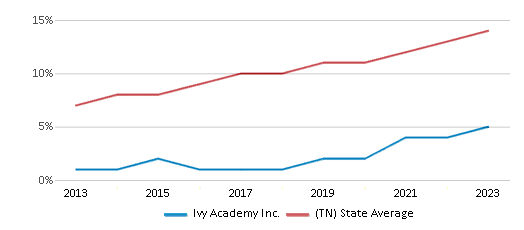
Black
3%
21%
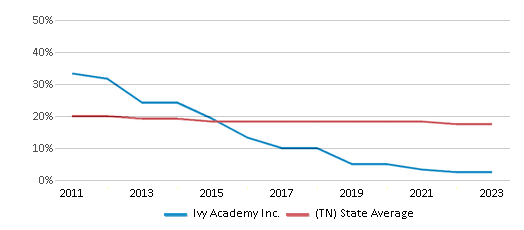
White
85%
57%
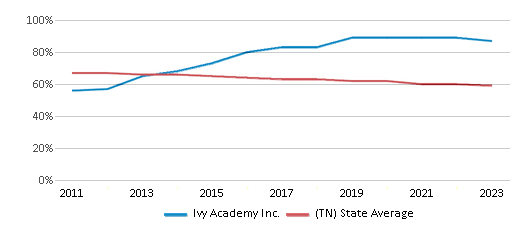
Hawaiian
n/a
n/a
Two or more races
5%
5%
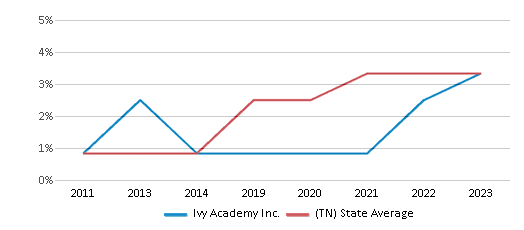
All Ethnic Groups
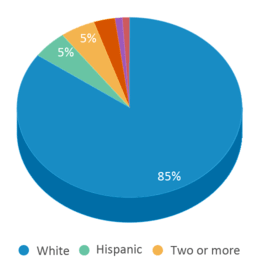
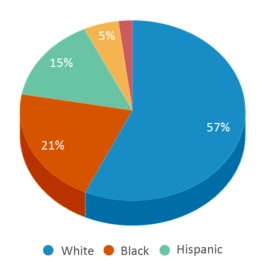
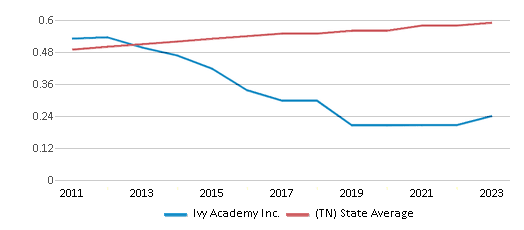
Graduation Rate
≥90%
90%
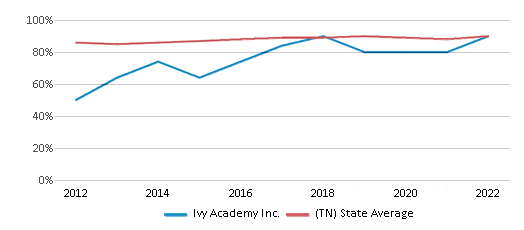
Participates in the National School Lunch Program (NSLP)
Yes
Eligible for Free Lunch
16%
45%
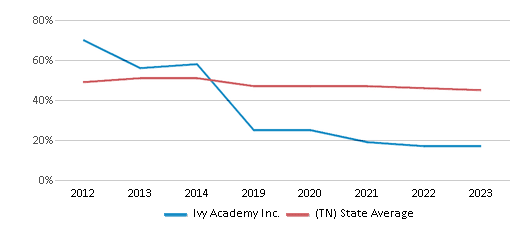
Eligible for Reduced Lunch
2%
6%
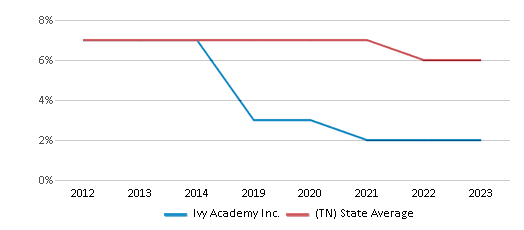
School Statewide Testing
School District Name
Source: National Center for Education Statistics (NCES), TN Dept. of Education
Profile last updated: 02/09/2025
Frequently Asked Questions
What is Ivy Academy Inc.'s ranking?
Ivy Academy Inc. is ranked #846 out of 1,761 schools, which ranks it among the top 50% of public schools in Tennessee.
What schools are Ivy Academy Inc. often compared to?
Ivy Academy Inc.is often viewed alongside schools like Soddy Daisy High School by visitors of our site.
What percent of students have achieved state testing proficiency in math and reading?
22% of students have achieved math proficiency (compared to the 31% TN state average), while 39% of students have achieved reading proficiency (compared to the 37% TN state average).
What is the graduation rate of Ivy Academy Inc.?
The graduation rate of Ivy Academy Inc. is 90%, which is equal to the Tennessee state average of 90%.
How many students attend Ivy Academy Inc.?
470 students attend Ivy Academy Inc..
What is the racial composition of the student body?
85% of Ivy Academy Inc. students are White, 5% of students are Hispanic, 5% of students are Two or more races, 3% of students are Black, 1% of students are American Indian, and 1% of students are Asian.
What is the student:teacher ratio of Ivy Academy Inc.?
Ivy Academy Inc. has a student ration of 13:1, which is lower than the Tennessee state average of 15:1.
What grades does Ivy Academy Inc. offer ?
Ivy Academy Inc. offers enrollment in grades 6-12
What school district is Ivy Academy Inc. part of?
Ivy Academy Inc. is part of Hamilton County School District.
School Reviews
5 9/28/2020
Love the school, love the approach to outdoor learning and environmental issues! Being an ADHD kid at this school helped me have breaks in my learning and not always sitting in a classroom for 8 hours a day and is very hands on! Teachers go above and beyond here! Staff are caring, friendly, and fun! I graduated in 2017 and hope they have improved on bullying policy since then as several in my class experienced it and were told to be the bigger person instead of the school applying their zero tolerance policy and reprehending the bullies. They were too concerned on the graduation numbers instead of students who were being bullied. I'm glad to see Angie M. is no longer working with/interacting directly with students on a daily basis. She is good for the school and its image however not the students as she is childish, petty, and rude to anyone she sees fit. That's not the example you set in a school setting.
Review Ivy Academy Inc.. Reviews should be a few sentences in length. Please include any comments on:
- Quality of academic programs, teachers, and facilities
- Availability of music, art, sports and other extracurricular activities
Recent Articles

What Is A Charter School?
Explore the world of charter schools in this comprehensive guide. Learn about their history, how they operate, and the pros and cons of this educational innovation. Discover key facts about charter schools, including admission policies, demographics, and funding, as well as what to look for when considering a charter school for your child.

10 Reasons Why High School Sports Benefit Students
Discover the 10 compelling reasons why high school sports are beneficial for students. This comprehensive article explores how athletics enhance academic performance, foster personal growth, and develop crucial life skills. From improved fitness and time management to leadership development and community representation, learn why participating in high school sports can be a game-changer for students' overall success and well-being.

February 05, 2025
Understanding the U.S. Department of Education: Structure, Impact, and EvolutionWe explore how the Department of Education shapes American education, from its cabinet-level leadership to its impact on millions of students, written for general audiences seeking clarity on this vital institution.






